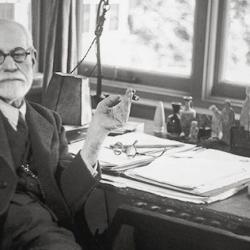The Sam Wanamker Playhouse, a Jacobean theater in the Globe complex in London, seats 340 in three tiers, tightly crowded on backless benches. During performances, the stage is lit by candles burning from six chandeliers. Actors enter and exit within inches of the audience. During Othello a few weeks ago, I watched Iago choke the life out of Roderigo a foot away from me; I was close enough to intervene, but didn’t. It’s hard to imagine where one can have a more intense theatrical experience than the Wanamaker.
Last year I saw Pericles, an improbable romance transformed by great acting and intimate surroundings into a drama of radiant, touching beauty. I wish I could say the same for this year’s Othello, but, though the play is vastly superior to Pericles, the performance was not.
Othello has its virtues. Kurt Egyiawan plays the lead with seething intensity and great dignity; at times all you see in the darkness of the stage are the whites of his wild eyes. Sam Spruell was a vicious, macho, occasionally funny Iago. The choreography of scene changes is seamless, and the fight scenes are gripping. The audience gasped when Iago broke his wife’s neck with a surprising craaackkk.
Casting errors, however, mar the play. Natalie Klamar is simply not up to the role of Desdemona—too awkward, frantic, aggressive. Thalissa Teixeira as Iago’s wife Emilia is a better actress, but she’s black, which rather defuses the racial tensions at the heart of the play. Iago tries to frighten Desdemona’s father Brabantio with lurid images of the Moor and Brabantio’s white daughter making the beast with two backs, but apparently Iago does the same in his own bed. If Venice is full of interracial marriages, what’s the big deal?
Easing (or confusing) the racial dynamics was perhaps intentional, since the production focuses our attention elsewhere. It’s more Cassio’s play than Othello’s, Cassio as played by Joanna Horton. She’s good but, well, Cassio is supposed to be a guy. Putting a woman in the role turns the imaginary triangle of Othello/Cassio/Desdemona into a lesbian triangle. Lesbian love, in fact, is doubled, since Cassio has his own love interest, Bianca.
I’m not a Shakespeare originalist. I love Titus, directed by Julie Taymor, with all its excess and sprawl and anachronism. I tolerate the black cross-dressing Mercutio in Baz Luhrmann‘s Romeo + Juliet because the inventiveness of the rest of the film makes up for the distraction. Put Ian McKellen in a Fascist uniform, and he can still carry off Richard III without a hitch. Shakespeare’s plays contain plenty of sexual confusion on their own, without doctoring the cast or the text.
Casting a woman as Cassio, though, doesn’t illuminate Othello; it only creates dissonance. Though the play is in period costume (complete with very prominent codpieces, discarded after intermission), Othello has a woman lieutenant. Nobody seems to notice the anomaly. Director Ellen McDougall brackets the play with extra-textual scenes involving Cassio. Before the play starts, we watch her as she silently puts on armor, and the play ends with Cassio and Bianca tearing apart the bed where Othello killed Desdemona. Just before the stage goes dark, the two women crouch before a fire.
All this distracts, and, worse, bludgeons home a political point. Presumably, McDougall hopes to draw a parallel between the racism and discrimination against gays and lesbians. Whatever the merits of the parallel, the point falls flat. It couldn’t be developed because Shakespeare’s text doesn’t dramatize, mention, or allude to lesbianism—and that’s because, well, Cassio is a guy. The racial issues are eased and confused, but nothing is there to replace them. For all the intensity, there’s a emptiness at the heart of the production.
Shakespeare isn’t perfect, but he’s hard to improve on. He’s plenty relevant, fully our contemporary, full of insight on our pathologies, without gratuitous, ideological efforts to update him.















